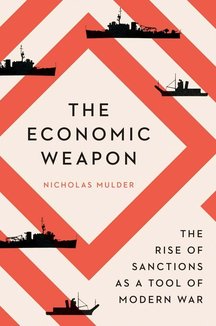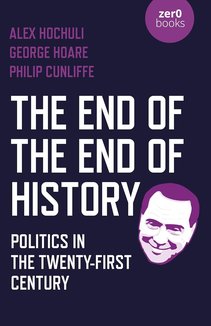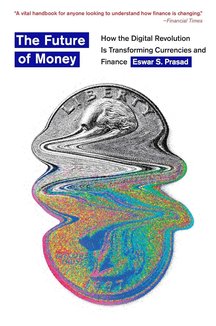Recommended Books

The Economic Weapon: The Rise of Sanctions as a Tool of Modern War
Author:
Nicholas Mulder
ISBN 13:
978-0300270488
The first international history of the emergence of economic sanctions during the interwar period and the legacy of this development A Foreign Affairs Best Book of 2022 “Valuable . . . offers many lessons for Western policy makers today.”—Paul Kennedy, Wall Street Journal “The lessons are sobering.”— The Economist Economic sanctions dominate the landscape of world politics today. First developed in the early twentieth century as a way of exploiting the flows of globalization to defend liberal internationalism, their appeal is that they function as an alternative to war. This view, however, ignores the dark paradox at their core: designed to prevent war, economic sanctions are modeled on devastating techniques of warfare. Tracing the use of economic sanctions from the blockades of World War I to the policing of colonial empires and the interwar confrontation with fascism, Nicholas Mulder uses extensive archival research in a political, economic, legal, and military history that reveals how a coercive wartime tool was adopted as an instrument of peacekeeping by the League of Nations. This timely study casts an overdue light on why sanctions are widely considered a form of war, and why their unintended consequences are so tremendous.

End of the End of History, The
Authors:
Alex Hochuli
,
George Hoare
,
Philip Cunliffe
,
Hochuli Alex
,
Hoare George
ISBN 13:
978-1789045239
'It's been a long time since a text was so useful in helping me think through our present moment and my role within it. The End of The End of History is a clear, powerful and panoramic analysis of our world at the dawn of the 2020s.' Vincent Bevins, author, The Jakarta Method The “End of History” is over. The idea that Western liberal democracy was the “final form of human government” has been exposed as bluster: the old order is crumbling before our eyes. Angry anti-politics have arisen to threaten political establishments across the world. Elites have fallen into hysteria, blaming voters, “populism”, Putin, Facebook… anyone but themselves. They are suffering from Neoliberal Order Breakdown Syndrome. Emerging from four years of interviews and debates on the popular global politics podcast Aufhebunga Bunga, The End of the End of History examines how the political consequences of the 2008 financial crisis have come home to roost. If Trump and Brexit shattered the liberal-democratic consensus in 2016, then the global pandemic of 2020 put a final end to the “End of History”. Politics is back, but it's stranger than ever.
Find on:
 Amazon
Amazon

The Future of Money: How the Digital Revolution Is Transforming Currencies and Finance
Author:
Eswar S. Prasad
ISBN 13:
978-0674293892
An Economist Book of the Year A Financial Times Book of the Year A Foreign Affairs Book of the Year A ProMarket Book of the Year One of The Week ’s Ten Best Business Books of the Year “A road map for money managers, market strategists, and others seeking to understand this new world.”― Barron’s “Money shapes economies, economies shape nations, nations shape history. It follows that the future of money is profoundly important. Here is a definitive report on where we are and where we are going.”―Lawrence H. Summers, former Secretary of the Treasury “Prasad manages to make the financial system intelligible and interesting without resorting to shortcuts and exaggeration…Previous overhauls mainly improved existing systems, he notes. The end of cash―likely within a decade or two―is revolutionary.”― The Economist The world of finance is on the cusp of a major disruption that will affect corporations, bankers, states―indeed, all of us. As Eswar Prasad makes clear, the end of physical cash will fundamentally rewrite how we live. Bitcoin, Ethereum, and other cryptocurrencies are just the beginning: spurred by their emergence, central banks will increasingly develop their own, more stable digital currencies. Meanwhile, cryptocurrencies themselves will evolve dramatically as global corporations like Meta, Apple, and Amazon join the game. Prasad shows how these innovations will redefine the very concept of money, unbundling its traditional functions. This transformation promises greater efficiency and flexibility, but also carries the risk of instability, lack of accountability, and erosion of privacy. A lucid, visionary work, The Future of Money shows how to maximize the best and guard against the worst of what is to come.